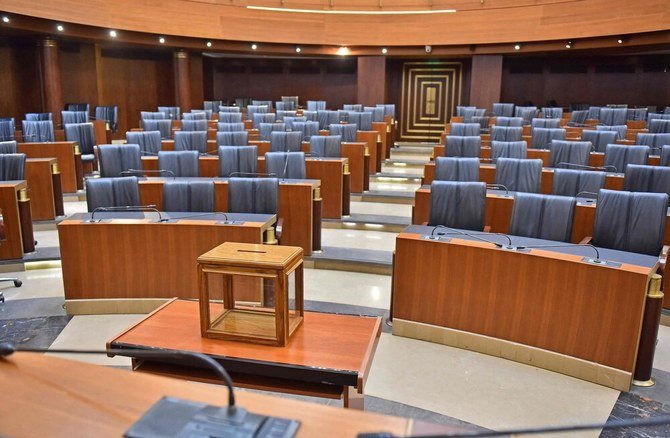Najia Houssari
BEIRUT: Lebanon’s parliament speaker has called a Thursday session to elect a new president, despite a political deadlock caused by a splintered chamber failing to agree on a candidate.
Nabih Berri’s announcement comes weeks before Michel Aoun is due to leave office, and as rival parliamentary blocs refuse to nominate or even discuss who should replace him.
Lebanon’s Parliament of 128 MPs contains two main blocs after elections earlier this year: The Hezbollah-aligned March 8 Alliance with 60 MPs, and their opponents, the March 14 Alliance with 38.
Parliament also contains 30 independents and reformists, meaning no bloc enjoys an absolute majority. As a result, a new president must have cross-bench support.
Ali Darwich, a former MP, said the announcement by Berri, whose Amal Movement is part of March 8, is intended “to hold everyone accountable.”
He said: “We hope that the session leads to the election of a president, but tomorrow’s scene will reveal that an agreement on the new president’s identity has yet to be reached.”
Consultations among parliamentary blocs have intensified since Berri’s announcement, with sources suggesting that many have agreed to attend the session.
Melhem Khalaf, a member of the 13-member Forces for Change opposition bloc, said Berri had “fulfilled his constitutional duty by urging deputies to carry out their responsibilities and avoid a presidential vacuum,” and “as reformists, we will be the first to attend.”
His alliance has however not nominated a candidate. Instead, it has issued a set of standards for Aoun’s replacement: “Lebanese-made, a savior chosen from outside the corrupted system that contributed to the destruction of the country.”
Under the constitution, which divides power between the country’s religions, any Maronite Lebanese can run for the presidency.
The most prominent candidates are usually the leaders of Christian parties, such as former deputy Suleiman Franjieh, the leader of the Marada Movement and an ally of the Syrian regime; Gibran Bassil, head of the Free Patriotic Movement and an ally of Hezbollah; and the head of the Lebanese Forces Party, Samir Geagea. However, none enjoy majority support in parliament.
The names that were reported on Wednesday to have received some support include Lebanon’s ambassador to the Vatican since 2018, Farid Elias Al-Khazen; former MP Salah Hanin; Michel Moawad, the son of former President Rene Moawad; and independent Neamat Ifram, an MP and businessman formerly of the Free Patriotic Movement.
Other tips for candidacy include Damianos Kattar and Jihad Azour, both former finance ministers; banker Samir Assaf; and Ziad Baroud and Marwan Charbel, both former interior ministers.
The Lebanese president is elected by secret ballot. Candidates must gain a two-thirds majority of the 128 MPs in the first round of voting to be elected outright.
A candidate with a simple majority of 65 votes can be declared the winner if further rounds are required.






















